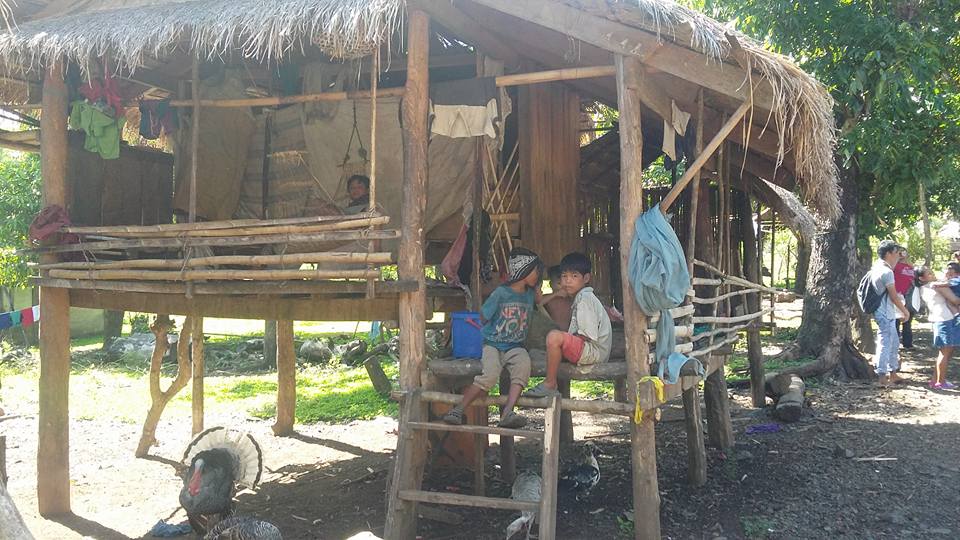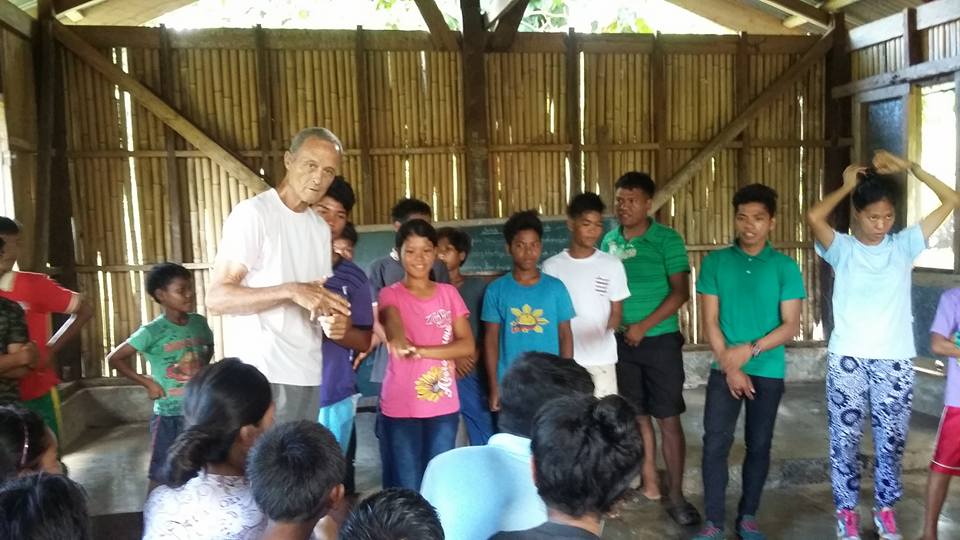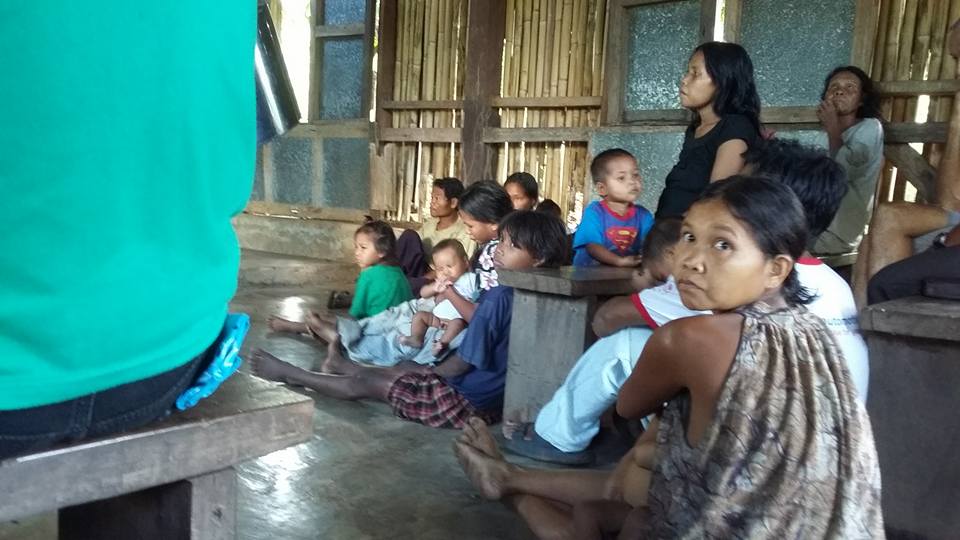Since becoming Christians in 1983, my wife Moni and I have supported missionary outreach.
In 1998 Jeff Reich, the director of Laymen Ministries, knew that we had sold our business and invited us to visit the Philippines and install some structure into the newly begun outreach here. We came, we saw, and we were captured by the desperate needs we encountered. 19 years later we are still here on the island of Mindoro trying to make a difference for the six indigenous tribes native to this island.
Over the years, we have observed many very well meaning missionaries and mission organizations come and go. The focus of these organizations seems to divide themselves into two major categories. There are “short term “ and “long term” focused outreaches.
The “short term” missionary outreaches also divides themselves with 2 major emphases. The first is “medical missions.” Many “medical missions” come with enthusiastic doctors and nurses, a good supply of medicines, and a willingness to work under adverse conditions for hours.
Here in the Philippines, many people have been spoiled by well-meaning “medical missions.” Large crowds of people wait for many hours to see a doctor “for free”. Finally, they get their few minutes of attention and receive their cough medicine, or antibiotic pills and leave satisfied, because it did not cost anything. Never have I observed that they were being taught the reason for their problem, or the natural remedy. Among our illiterate population, they cannot read, or remember the doctor’s instruction. Frequently, after two or three days, they cease taking the medicine and the remaining pills are consumed by young children, hungry animals or insects.
In all the years of observing medical missions, I have not observed lectures on prevention, or personal counsel as to cause and effect. Never have I observed medical personnel praying with patients or mentioning Jesus. Instead of changed lifestyles, we find people who have no idea what caused their sickness, and are continuing their lifestyle as before – awaiting the next “free medical mission”.
The second typical short-term missionary outreach is the “gospel crusade”. These are typically two weeks in length and consist of nightly meetings with good singing and often a video, where a “guest speaker” makes a Biblical presentation.
Here in the Philippines, it is not difficult to attract a crowd, as there frequently is nothing else going on in the community. In addition, many people will attend for a “freebie”- a ball pen, a cap, or a kilo of rice. It is also not difficult to get candidates for baptism as it is in the culture of the Philippines to want to please and not say no, and then “maybe I will also receive a free gift”.
The second type of missionary projects is “long term”. Laymen Ministries Philippines (LMP) and Katutubo Excel Schools (KESI) are of this type outreach. We live among the people and minister daily to their physical, educational and spiritual needs. This is a slow process, very labor intensive and expensive. We believe this to be the method of Jesus! Let us observe some of the efforts by LMP and KESI. As a result of our work here, there are now more than 200 native (Katutubo) children in school, whereas prior to our coming, there were no schools available for them. At KEHS, the only exclusive senior high school for natives in the Philippines, we just celebrated our first 12th grade graduation. Our graduate’s goal is to go to college to become a teacher and return to minister to her own people.
Being missionaries to a tribe who are 100% illiterate and animistic, the day-to-day ministry is vitally important. We attempt to teach the principles of health and hygiene and natural remedies. We also attempt to live our lives as examples of what we teach. When necessary, we take our natives to the hospital, but we must stay with them. We must be sensitive to the feelings of our natives who have never seen a light switch, a flush toilet, a person dressed in white who sticks a needle into them that hurts. These natives are not familiar with the body parts or their functions. They may believe the stomach is cold or hot because an evil spirit is in there. They can’t read, so giving them instructions of how to take medicine is useless. Upon returning to the village, we keep their medicines in the mission house and they come two, three, or four times a day to receive their dose. This way we are not only able to monitor their progress, but to show compassion and pray with them.
In reference to ministering to their spiritual needs, our missionary teachers actively teach Christian principles in school. They also hold mid-week services in the school, or they go into the villages and meet in the native’s houses. Friday evening’s Vesper programs are held and Sabbaths are full of Sabbath Schools and Divine Worship activities. Two of our villages have separate church buildings, while in the other two villages we meet in the school. Most village teachers conduct adult literacy classes to bond with the parents of our school children. This has resulted in several villagers attending church and requesting Bible studies. Frequent contact is a sure way to make friends and gain their trust. Once trust is established, they will come to the mission house to sell produce, ask for help, or to visit.

Our great commission is to “go and teach!” We take the gospel mission very seriously. We believe our calling is to evangelize people and teach them to evangelize others. To be successful in reaching this calling, education is vitally important. From the beginning of our work here in Occidental Mindoro, education has been our priority. Today we have 200 elementary students and 14 high school students receiving a first class quality and free education in the five schools operated by Laymen Ministries Philippines and Katutubo Excel Schools, Inc. We have elementary students who lead the Sabbath School and even preach. We strive to build a solid spiritual foundation under our students. Without educating them to read with comprehension and “studying to show themselves approved unto God”, we believe it very unlikely that they will be able to pass on their faith. These students are our link to their parents, who are animists. After preparing them with a solid academic and spiritual foundation, we intend to send them to college with the understanding that upon graduation they will return to be the missionary teachers, nurses, doctors, or agriculturist to their own people. We have just graduated our first senior high school student this year.
Short-term vs. long-term experience 1:
The first missionaries to our tribes came right after WWII from Switzerland. They were from OMF International (Overseas Missionary Fellowship) – the modern continuation of Hudson Taylor’s China Inland Mission. These sweet missionaries did truly ground breaking work. They even translated the New Testament into the native dialects. The only problem, the natives are illiterate and can not make use of their Bible. The native leaders can only share what they were told, but they can not show or prove their beliefs from the Bible. Over the years, many have left their “Mangyan Tribal Church Association.”

Short-term vs. long-term experience 2:
20 years ago, a missionary organization entered an unreached village and had missionaries living with the natives for several years. Their approach was to evangelize the people, build them a church building, ordain church elders and then move on to “plant another church.”
Last Sabbath, our high school students, who are working during this school vacation on the high school campus, a few teachers and I hiked into the mountains to visit this village. As we approached the village, we could hear singing. As we got closer to the church we recognized children’s voices and found about 6 young children being led by an 11 year old girl, who had memorized many Christian songs. Word must have spread rapidly through the village that strangers had arrived, because soon the church was full. After 30 more minutes of singing, a young man stood to speak. He was trying to read from a very thick, coverless book. He was trying to read in Tagalog, but his reading skills were grade 1 at best. After reading in Tagalog, he would attempt to explain in the native language of the tribe. With me were both native Tagalog and members of this tribe. None of our members understood what he read or where it came from, and I am sure that the villagers didn’t either. After the service, I asked to see his book. I was shocked to find out that he was reading from 1st Maccabees. He did not know that he was trying to read and teach from the Apocrypha, a group of 14 books not considered canonical, but included in Roman Catholic Bibles.


The missionary organization and their dedicated missionaries meant well by introducing this animistic tribe to Jesus. Leaving them without trained – educated leaders, they had no way to discern truth from error and were prey to every wind of doctrine.
Laymen Ministries Philippines is very slow to baptize and is conscious of the vital need for a firm foundation as we face the final days of earth’s present existence. We have made our share of mistakes over the past 20 years and we have no intention of belittling any other missionary organization. We desire to learn from other’s mistakes and not repeat them. There are no shortcuts in mission work. Missionaries must have a long-term view and be prepared for many frustrations. We are thankful that God is blessing the work LMN is doing and growing the missionaries along with our natives.
May we believers, “gird up the loins of our minds” and “be about our Father’s work!”
We thank all of our co-missionaries who faithfully pray for our efforts for the Master and also those who contribute funds, which allow us to “press on “ for the Master. May “He find faith on the earth when He comes.”
Maranatha!